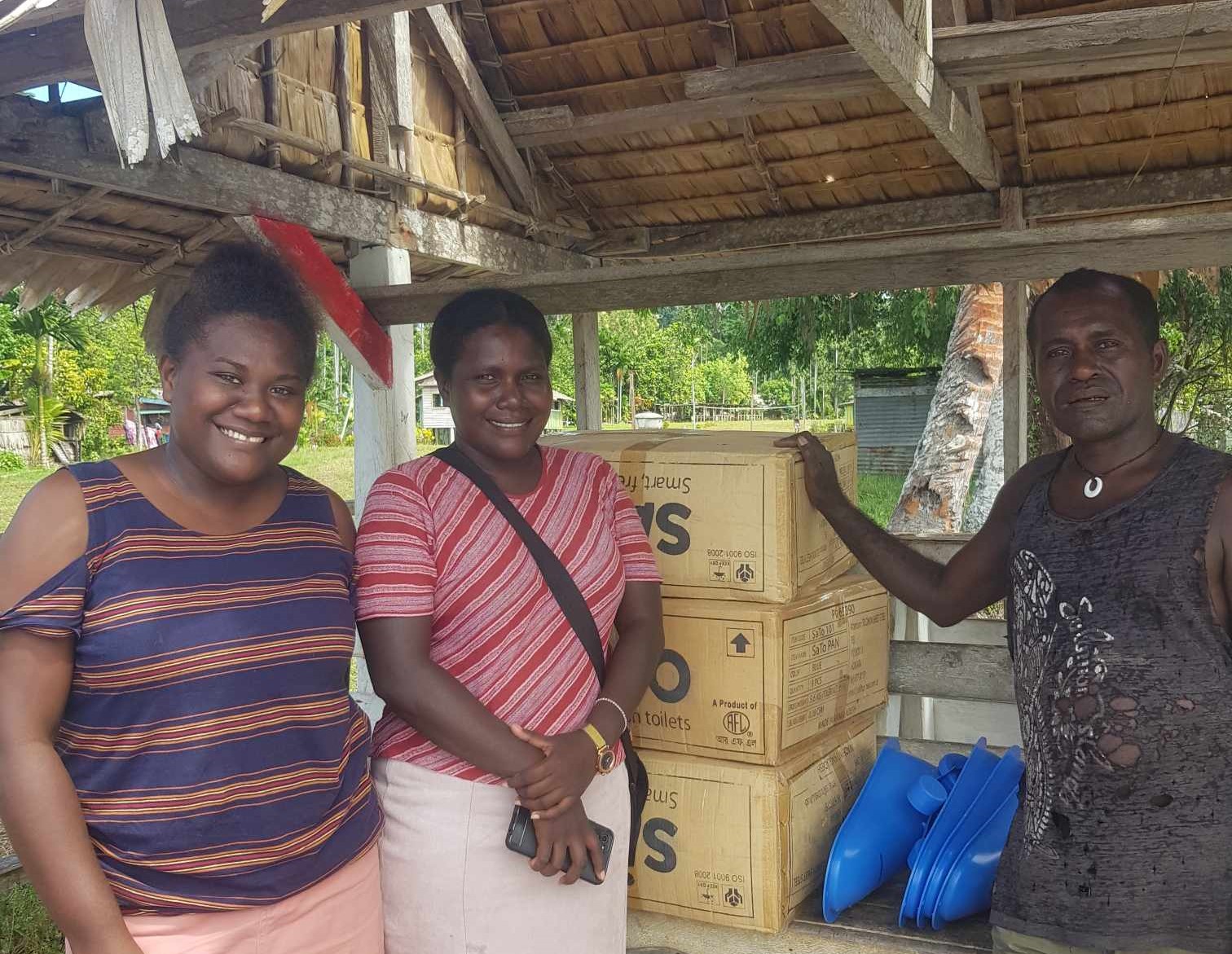
KENA COMMUNITY RECEIVES FIRST 43 SATO PAN TOILETS FROM ADRA
Kena Community in Ward 12 on Kolobangara Island in the Western Province has become the first recipient of Sato Pan toilets through the efforts of the Adventist Development and Relief Agency (ADRA), marking a significant milestone in response to Pre-triggering and Triggering activities last year.
Under the National Sanitation Sustainability Plan (NSSP) Program’s second phase, 19 communities across Kolombangara Island have been identified for sanitation improvement initiatives.
ADRA has commenced community consultations, engaging with village leaders to explain the project and communicate the implementation strategy within their communities.
UNICEF has generously funded the project, overseen by ADRA Solomon Islands on Kolombangara, Vela, and Ranonagah. The project, initiated in September 2023, is set to conclude in September 2024.
Verma Kiko, the Project Coordinator for ADRA in Kolombangara Island said they successfully completed delivery of 43 Sato Pans toilets to 43 households in Kena Community.
“These sato pan toilets community themselves purchased them using their own funds, with ADRA’s Kukudu office facilitating the acquisition’’
“We successfully delivered the Sato Pan toilets to these households on January 11, along with four spades on a later date, witnessing people beginning the process of digging their toilet pits,” Ms. Kiko said.
The Kena Community, mostly dominated by Christian Fellowship Church (CFC), includes 80 households set to benefit from the project.
ADRA has also trained three volunteers from the community in the implementation of Community-Led Total Sanitation (CLTS) during a training session held in Kukudu last year.
“With the training received, these volunteers are now actively implementing the CLTS project. We observe that people are actively digging their toilet pits’’
“We plan to distribute more Sato Pan toilets to the remaining communities in the coming days,” Ms. Kiko added.
The NSSP program serves as an implementation plan to enhance sustainable sanitation services at provincial and national levels, aiming to improve hygiene behaviors within communities.
Emphasizing community engagement, the program employs CLTS as an entry point, complemented by post-ODF follow-up visits, sanitation marketing, and communication techniques to create awareness and foster changes in social norms regarding Open Defecation.
Moving forward, the program will collaborate with Education Authorities, Local Community-Based Organizations, MHMS-RWASH, and the provincial government in the Western Province.
This collaboration aims to establish a robust foundation in the target area and engage provincial authorities in ensuring the long-term sustainability of the NSSP program.
With UNICEF funding, the project has been successfully implemented by the Adventist Development and Relief Agency (ADRA) over the course of one year.
End//
– ADRA Press Release
